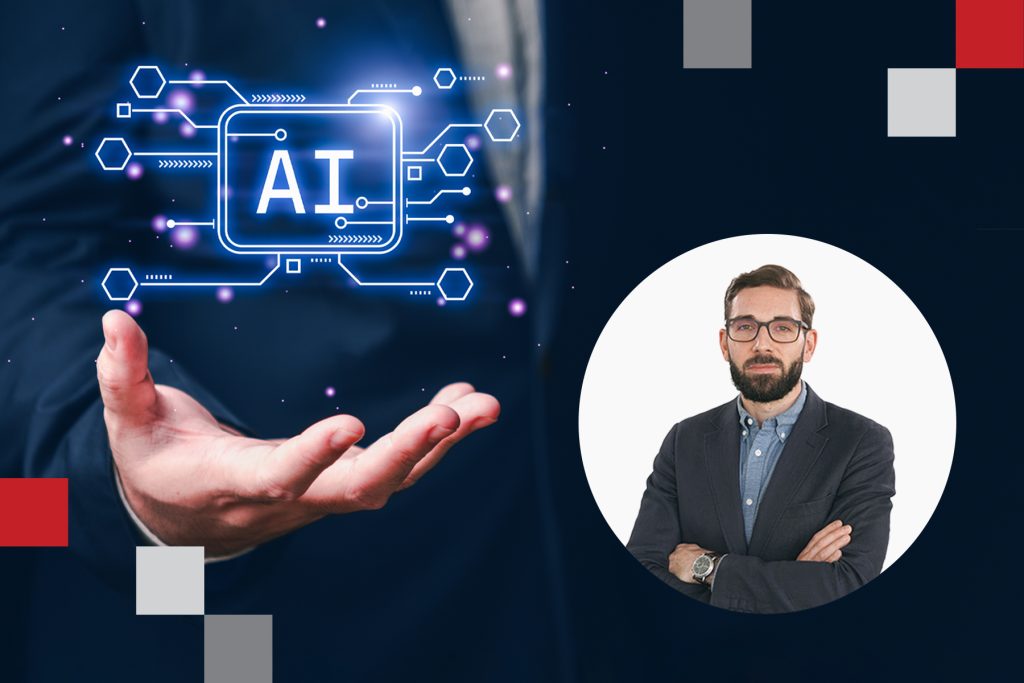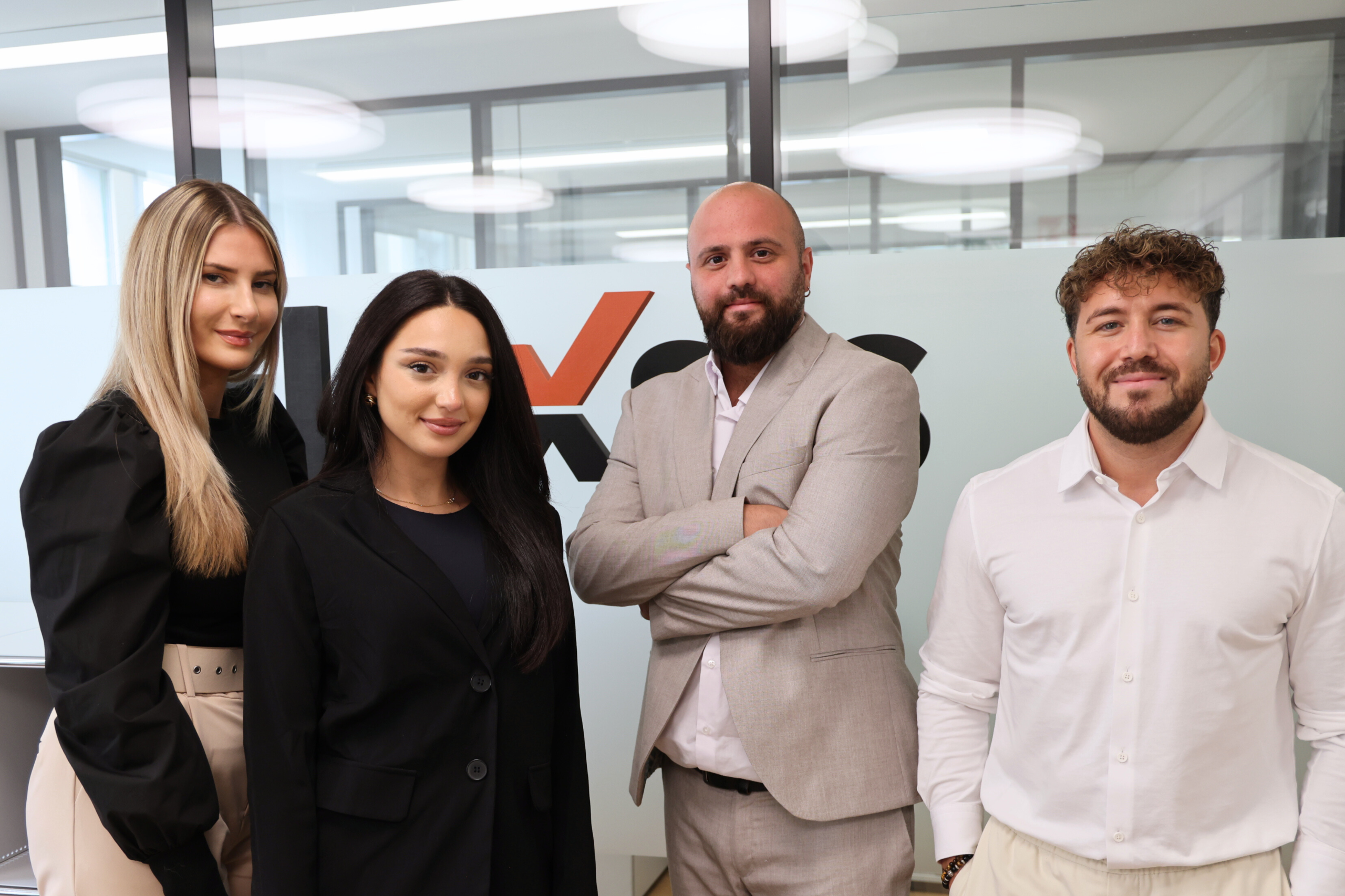Putting Humans First: Interiman Group’s Approach to AI in Recruitment
- Blog

Yves Schneuwly, Chief Digital & Marketing Officer at Interiman Group, sees artificial intelligence as a powerful lever to reinvent recruitment, as long as it remains a tool in service of people, not replacing them. His hybrid approach outlines a path that is both pragmatic and ambitious.
Since April 1st, 2025, Yves Schneuwly has held the position of Chief Digital & Marketing Officer at Interiman Group. As a member of the executive board, he brings a sharp vision shaped by dual experience in both human resources and digital ecosystems. In his view, artificial intelligence (AI) presents a unique opportunity to rethink the recruitment industry, provided it’s implemented with rigour, discernment, and a human-centred mindset.
AI as a Tool for Efficiency, Not a Substitute
Interiman Group receives nearly one million applications each year. Faced with this volume, optimising processes has become a necessity. Automating certain tasks, such as creating digital candidate records or managing documentation, is now essential. “AI allows us to free up time for what really matters: human relationships,” explains Yves Schneuwly.
With a background in digital, he has tested and observed numerous automated recruitment platforms. His conclusion is clear: these tools can be useful for straightforward and time-sensitive needs, such as replacing an absent employee as soon as the withdrawal is registered. But when it comes to longer assignments, strategic recruitment, or aligning with a company’s culture, their limits quickly show. For him, humans are irreplaceable.
“AI can accelerate certain processes, but it cannot listen to a candidate’s doubts, perceive team dynamics, or help a company build a consistent HR strategy. That is where our true added value lies,” he emphasizes.
Integrating AI Responsibly and Effectively
To ensure that AI becomes a driver of transformation rather than a source of risk or disorganisation, Yves Schneuwly advocates for a three-level approach. The first goal is to enhance employee productivity. Next, to optimise and automate key processes that generate value. And finally, to develop new services and create added value for clients, candidates, and the broader market.
This third level is crucial: it shifts the focus from internal optimisation to real external impact. AI only unfolds its full value when it enhances the experience for clients, simplifies interactions with candidates, and sustainably strengthens our position in the market.
The first level serves as the foundation of the strategy. Yves Schneuwly highlights three essential levers at this stage:
- Select the right general-purpose AI tool: It must be a versatile and accessible solution capable of handling a wide range of everyday needs.
- Set up clear and secure governance: The aim is to avoid the risks of unregulated or free tools by ensuring data protection and clearly defined usage guidelines.
- Train and support all employees: The goal is not to turn them into technical experts, but to equip them with tools that relieve them from repetitive tasks, so they can focus on client relationships, career coaching, and strategic guidance.
Facing Digital Transformation with Realism
With the rapid adoption of AI tools in the workplace, caution is essential. A recent study by the University of Zurich found that 54% of Swiss internet users already use AI tools regularly. “The real question is no longer if, but how,” says Yves Schneuwly. “AI is not a passing trend. It is infrastructure that will be at the core of tomorrow’s practices. But it needs to be built on healthy foundations.”
Governance becomes a central issue. Poorly managed AI can introduce bias, compromise data security, or lead to arbitrary decisions. Far from being purely technical concerns, Yves Schneuwly calls for a digital ethic where every technological deployment is guided by clear principles rooted in trust and responsibility.
Freeing Humans to Better Value Them
Ultimately, technology only makes sense when it reinforces the human element. At Interiman Group, this translates into giving consultants back the time to focus on what truly matters: meaningful conversations, understanding professional aspirations, and providing tailored support.
“The real strength of a recruiter lies in their ability to read between the lines, uncover hidden potential, and build trust,” explains Yves Schneuwly. These are qualities that AI, despite its advances, cannot replicate or fully grasp. In an economy that is increasingly predictive and driven by data, where everything seems quantifiable and automatable, human subjectivity becomes a decisive asset. The ability to interpret nuance, make decisions amid uncertainty, and act with empathy are the skills that will shape success in the future.
A Hybrid Approach That Honors Individuality
Yves Schneuwly’s vision is neither blindly pro-technology nor fearful of it, it’s hybrid. The aim is not to set humans against machines but to combine their strengths intelligently, like solving an equation with two unknowns by applying a new method. AI is a powerful tool, but it must serve a broader strategy centred on people.
Consultants and recruitment agencies that master this balance will evolve from mere task executors to becoming true strategic partners, as exemplified by Interiman Group. By relying on AI to improve efficiency, they can redirect their efforts toward enriching the human side of recruitment: the place where real value is created.


